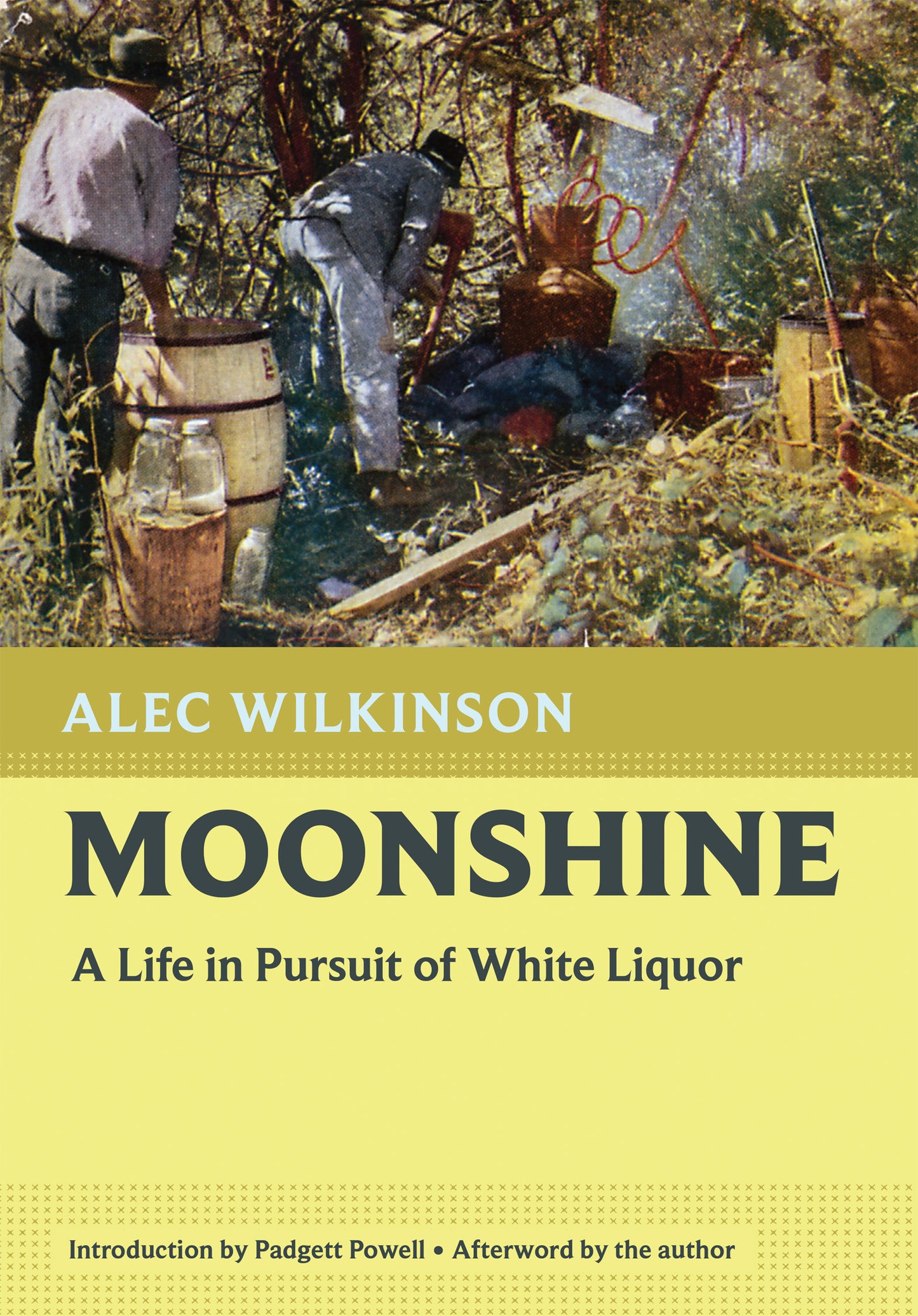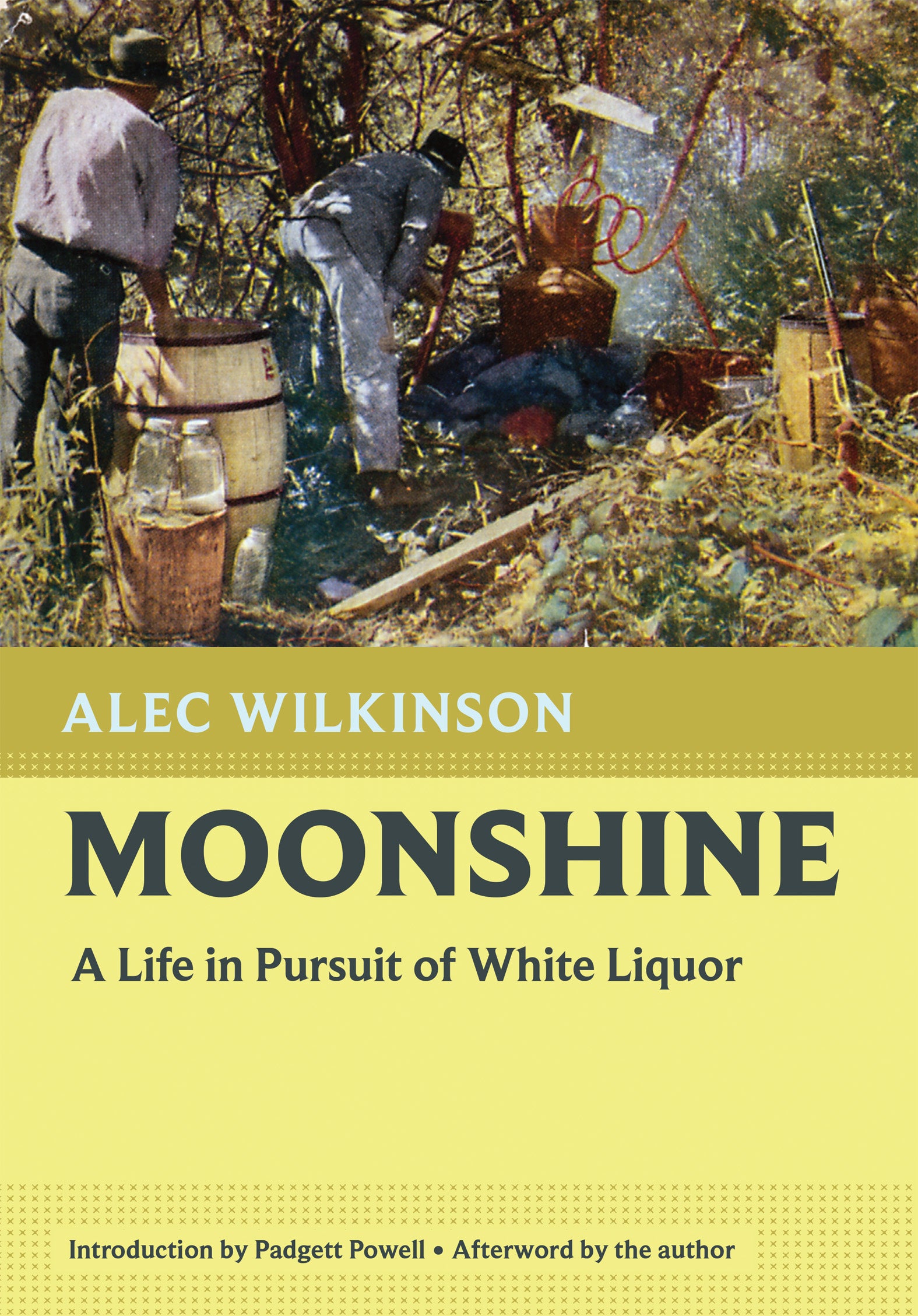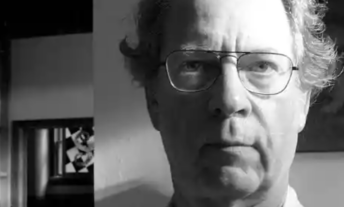
A vivid portrait of legendary liquor agent Garland Bunting, an American original who patrolled rural North Carolina when moonshiners worked their stills in the backcountry.
For thirty-five years, Garland Bunting slid his “sweet potato shape—small at both ends and big in the middle” onto the front seat of his beat-up pickup with the coon dogs in the back to ride around in pursuit of moonshine stills in Halifax County, North Carolina. Bunting was true a one-of-a-kind, a man who would do nearly anything to get his culprit. To best the bootleggers, Bunting passed himself off as an outrageous array of characters, including a door-to-door fish peddler, a preacher, a farmer, a fox hunter, a sawmill worker, and a woman.
Articulate, canny, imaginative, and aware—aware even that he’s an unusual character—Bunting fills the foreground of Alec Wilkinson’s deeply reported and elegantly told story. This is experiential, immersive, journalism at its best.
Moonshine is a wonderfully alive portrait of both Bunting and rural North Carolina’s coastal plain, with its landscape of small farms, woods, and swamps. We meet the people Bunting grew up with, his fellow liquor agents, his cronies, and his shy wife, Colleen. Along the way, we learn the history of moonshine and how it is made, and accompany Bunting on the stake-out of a small, backwoods still.
For viewers who made Moonshiners a hit for 12 seasons on the Discovery Channel, this is the book they’ve been waiting for. All readers will find a story where the flavors of the past and present are richly intermingled.
This book is part of Godine's Nonpareil series and includes a new introduction by Padgett Powell.
Praise for Moonshine
“An intoxicating portrait of the rural American South in all of its charm, danger, desperation, and color.” —Foreword Reviews
“When people talk about the great, classic New Yorker writers—the Joseph Mitchells and Susan Orlean and the rest—I make a point of adding a footnote: ‘Don't forget Alec Wilkinson.’ Moonshine is a big reason why. It’s about a great ‘revenuer’ who busted up moonshining operations, but it's also about the beauty and endless versatility of the English language.” —John Jeremiah Sullivan, author of Pulphead
“In a reporting style so sharp and economical that the prose fairly crackles, Wilkinson relates the history, the chemistry and the mechanics of a vast [bootlegging] enterprise . . .” —New York Times
“Altogether a delightful and offbeat book.” —Los Angeles Times
“A literary portrait so absorbing that even an urbanite can appreciate it as a small masterpiece.” —Playboy
“Wilkinson displays a knack for locating the obsessive impulse that drives people into rigorous and baroque occupations . . . A curious and evenhanded reporter, he always lets his subjects have the last word.” —Newsweek


